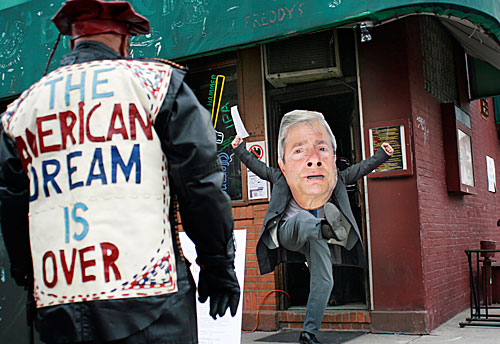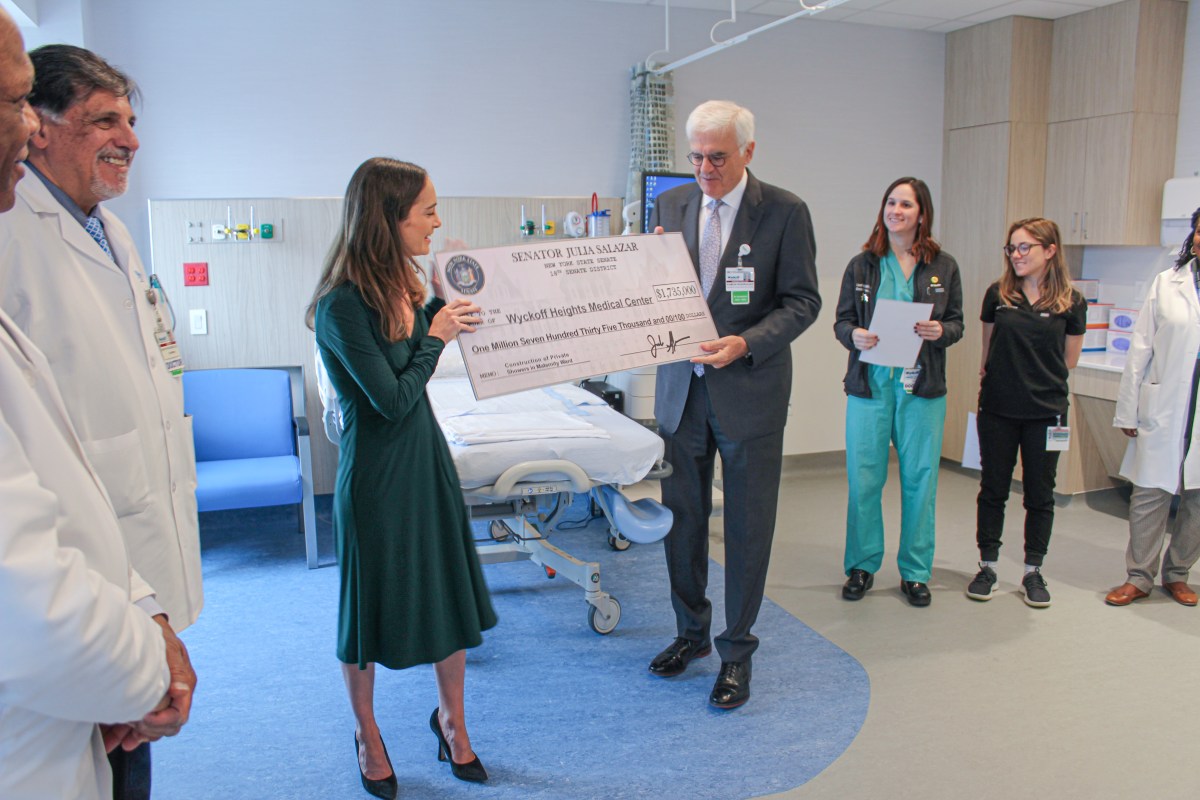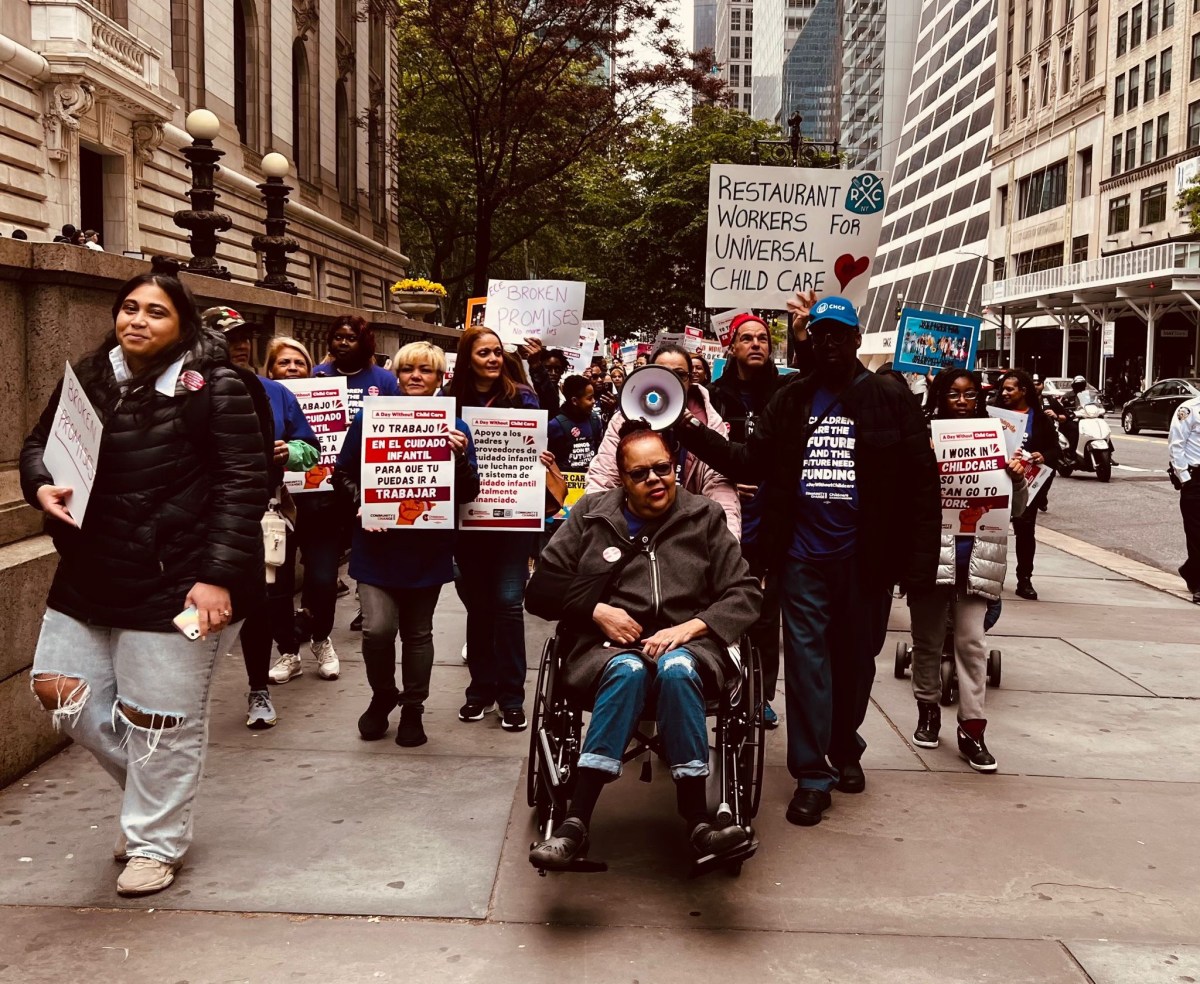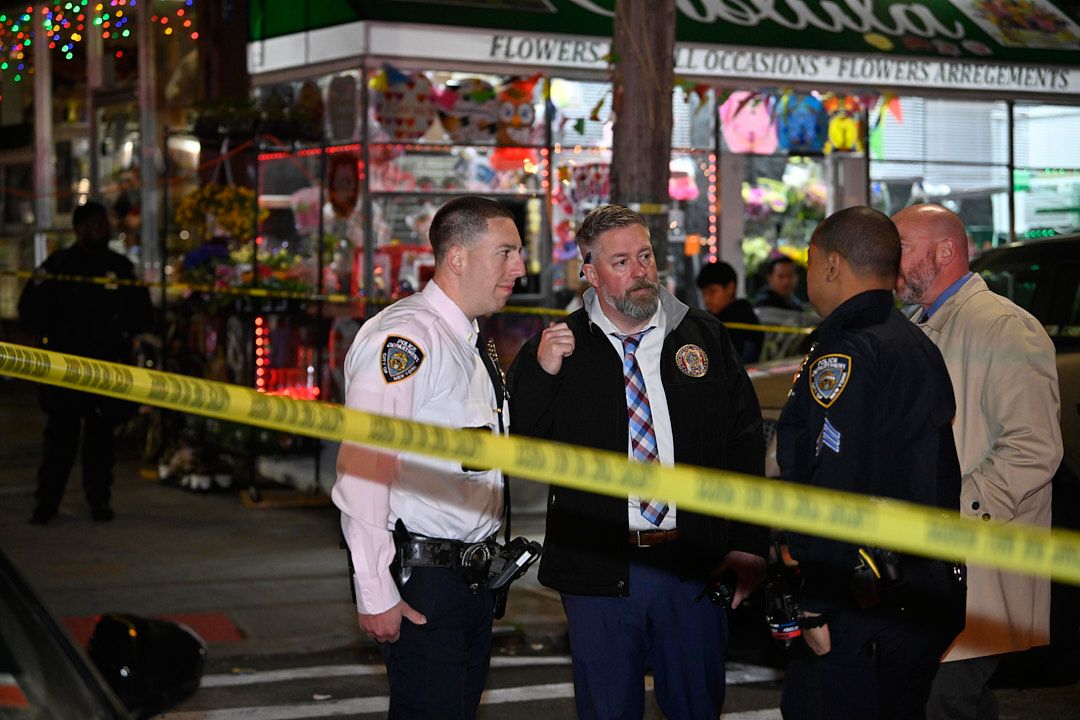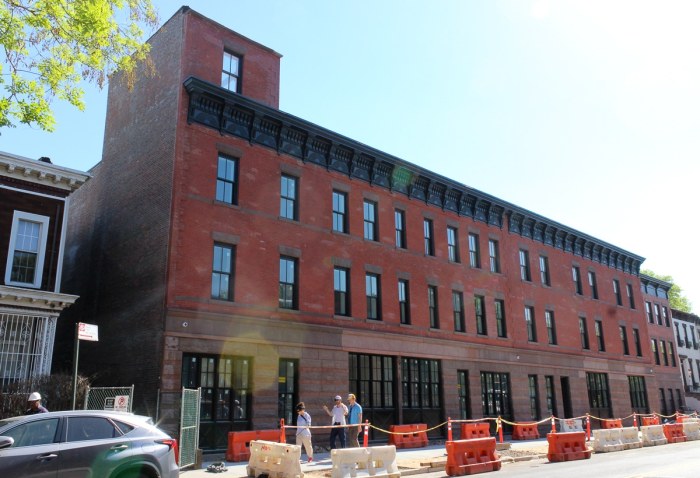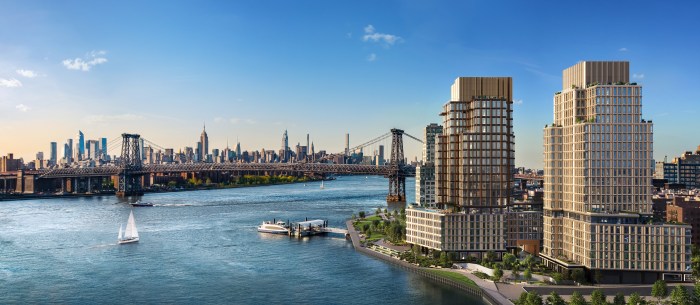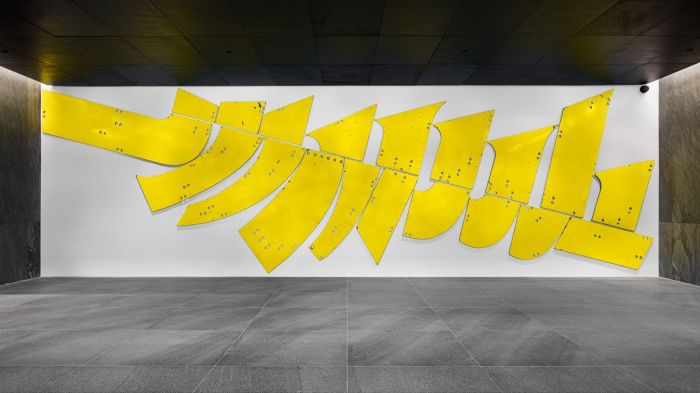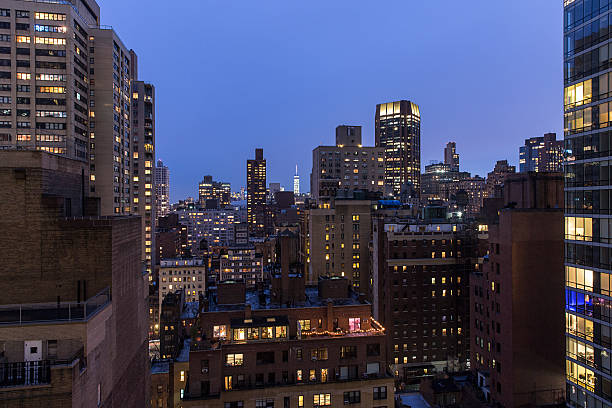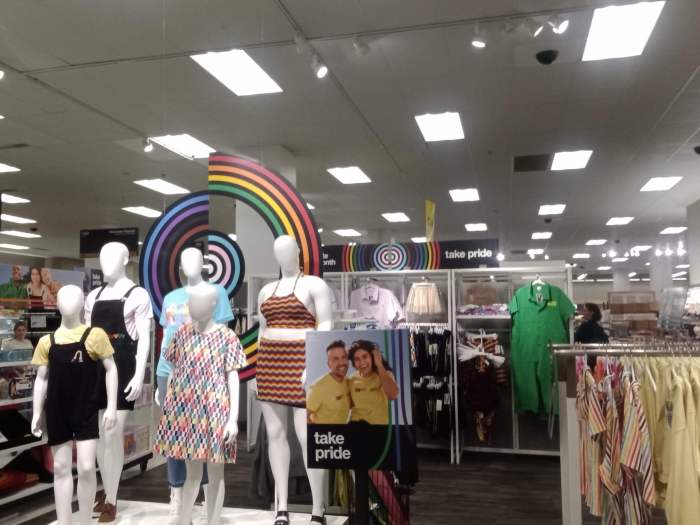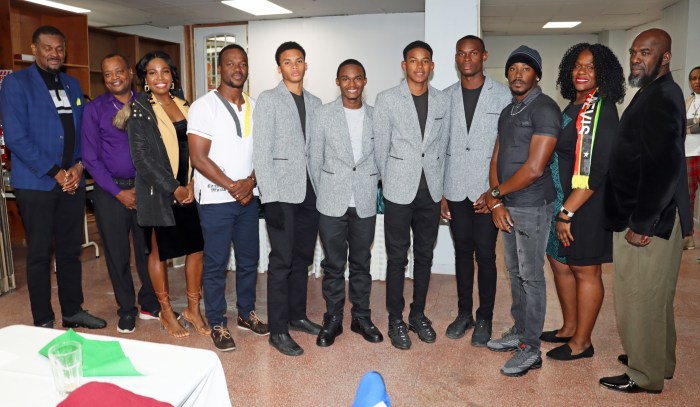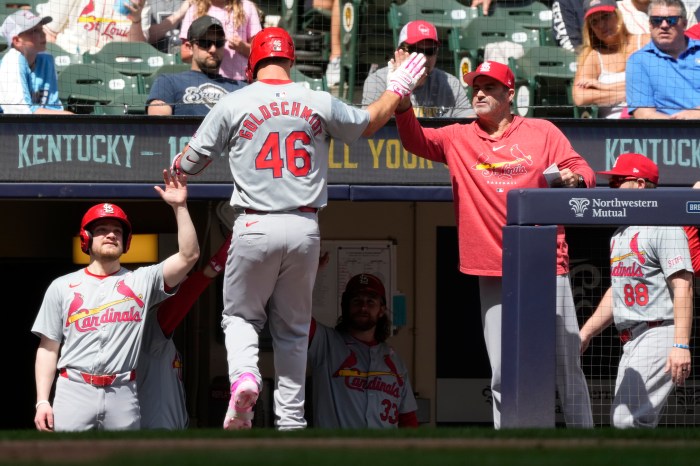Hipsters, old-timers, and barflies will raise their glasses at Freddy’s Bar for the last time on Friday — making a final toast to a Prohibition-era watering hole, but one man won’t be there: the man whose name is on the awning.
Freddy Chadderton, who sold the bar to its current owner in 1996, lives on Long Island — but at age 82, he isn’t looking back at his salad days.
“I had a good run,” he told us this week.
But Chadderton is one of the few people connected with this bar that isn’t crying at least a bit in his beer this week, recalling a neighborhood joint that apparently has to be torn down so that Bruce Ratner can build a basketball arena.
It was indeed a good run.
Long before it was Freddy’s Bar, and even before Adolf Hitler got his much-deserved comeuppance, the barroom at Dean Street and Sixth Avenue served as a salon for top dogs at the Spalding ball plant, a soon-to-be-demolished building nearby.
Back then, according to David Sheets, a chronicler of Freddy’s lore who lived next-door to the bar from 1997 until this year — the watering hole did not bear any resemblance to present day.
During the Prohibition era, the building looked like a bunker. But inside, Spalding execs were drinking on the sly — and sometimes in plain sight.
“It’s often said it was a speakeasy,” said Sheets. “That’s misleading — it was a place to entertain clients.”
Around World War II — the date is unclear — Willy Henderson bought the three-story building on Dean Street and rechristened the bar. Some called the place, “The White Horse.” Others knew it simply as “Henderson’s.”
This version of the watering hole was a neighborhood joint — complete with a small bowling alley in the basement.
In his later years, Henderson, a heavy smoker, still hung around, barking at the newcomers in his bar through his cancer kazoo.
In 1961, Henderson hired Johnny “Seat Covers” Severino as bartender — a job that he held until 1994. Seat Covers moved into an apartment above the bar and stayed there until he died in 2005.
One of Severino’s regulars was a 78th Precinct beat cop, the now-immortal Freddy Chadderton.
In 1975, Chadderton retired from the force and bought the bar and building from Henderson.
“In the matter of a day, Freddy not only became [Seat Covers’s] boss, but his landlord!” Sheets said, who spent countless hours with Severino.
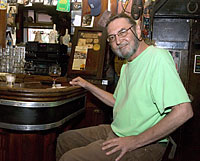
It was during the Freddy’s era that the bar became a hang out for the boys in blue and firefighters. Employees over at the Daily News building between Sixth and Carlton avenues on Dean Street — now condos called Newswalk — also came by.
As a possible result, the bar became rowdy.
“At the time, Dean between Flatbush and Sixth avenues became quite a hotbed of prostitution,” said Sheets. “They were the biggest clients, the cops! And the firemen, too.”
Cops would hold meetings in what is now the back room, sitting in old church pews that Freddy had brought in. Seat Covers would cook cheap bar food while also serving drinks.
Freddy used to entertain himself by “making it rain,” 1970s style, his wife, Dorothy recalled. She said Freddy would sit their eldest son beside a fan on top of a phone booth in the corner, hand him a wad of cash and let it blow all over the bar — an amusement that elicited plenty of robotic curse words from Henderson, who still hung around.
In 1996, Freddy was getting old, the Daily News had moved out — so he sold the place for $35,000 to Frank Yost — only $10,000 more than what he bought it for. Chadderton’s sons wanted to buy the place to turn it into a music venue, but he said no. He didn’t want his old bar turning into a club.
Now that the place was in Yost’s hands, Sheets, who started tending bar, and others commenced the difficult work of getting rid of the cop clientele.
“There was a lot of concern that if anything happened at three in the morning, would anyone from the precinct come to our aid?” Sheets said. “I’m not a teacher and you’re not my students, stop acting like kids. You [cops] ask me to put up with all this, then you don’t pay me. They were terrible tippers.”
And so Freddy’s began evolving into the bar that will close this week. Seat Covers still made his way downstairs for his morning “nips.” Everyday he would double-park his 1970 black Mercury out front after running errands and lament the terrible parking situation on Dean Street while he drank.
Then in 2003, came the news about the Atlantic Yards, and that Bruce Ratner was looking to buy everyone’s property in the footprint. Over the next seven years, the buildings nearby would be emptied, and Freddy’s would go from being a neighborhood dive to a destination, even for people as far away as Manhattan.
Some regulars bristled at the newcomers, but they kept the place afloat.
“In a way, I liked the fact that there were hipsters populating the place at 3 or 4 in the morning,” Sheets said. “It provided a sense of security that someone was there — it didn’t look abandoned, which in fact it was.”
But while the hipsters partied on the weekends, Yards opponents gathered there to organize protests, paint banners, and parse legal documents.
Last week, Yost finally took an offer from Ratner, and will be moving to a new location at Fourth Avenue and Union Street.
“For me, those rooms at Freddy’s, and up and down the block, there are ghosts — voices echoing all over the place,” Sheets said. “For lots of people to have that taken away — it’s not the end of the world — but it hurts. It’s very emotional for a lot of people. It’s not just me.”



